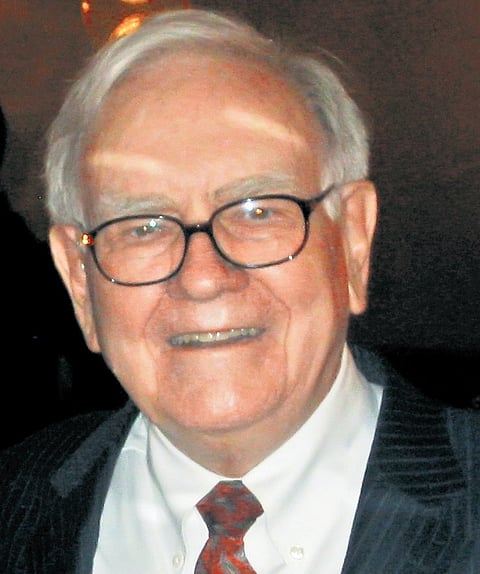

NEW DELHI: American investor and businessman Warren Buffett’s annual letter to shareholders is a thing of legend for the investment community. Buffett, who also co-founded Berkshire Hathaway, has a religious following among the investors community. Through Berkshire Hathaway, Buffett holds significant investments in many large US-based companies. His pieces of advice on investment, stock-picking and corporate governance, etc are held in high regard by investors across the globe.
Buffett has been writing annual letters to shareholders of Berkshire Hathaway since 1965 without a break. Despite his legend-like following and stature, Buffett and his investment philosophy has not been immune to criticism. Yet his annual letter to shareholders is widely written about and discussed. This year on 24 February, Buffett issued his letter to shareholders, sharing his investment tidbits, his views on his holdings through Berkshire Hathaway and also his investment philosophies. Investors treat these letters as an investment masterclass and use his tips for picking ‘right’ companies for investment.
We bring you some of the investment lessons from Warren Buffett’s latest letter to shareholders.
Operating profit over net profit: According to Buffett, operating profit – profits earned purely from core operations of the company – is a better gauge of the company’s financial health. Buffett says while net profit is reported more as a mandatory accounting practice, and is even widely transmitted, Berkshire Hathaway is more comfortable with operating profit. Operating profit excludes revenues from non-operating activities like sale of assets, investment and dividend earnings, gain from foreign exchange, etc. It also excludes non-operational expenses like interest payment on debt, cost of acquisition of assets. “The primary difference between the mandated figures (net profit) and the ones Berkshire (operating profits) prefers is that we exclude unrealised capital gains or losses that at times can exceed $5 billion a day,” says Buffett in his letter to shareholders.
Invest in businesses that enjoy good economics: Buffett has been a proponent of long-term investment, and he believes in investing in companies which enjoy good economics that are fundamental and enduring. “We want to own either all or a portion of businesses that enjoy good economics that are fundamental and enduring. Within capitalism, some businesses will flourish for a very long time while others will prove to be sinkholes. It’s harder than you would think to predict which will be the winners and losers,” says Buffett in his letter.
He also exhorts investors to stay away from pundits who claim to predict long-term winners or losers in the stock market. “And those who tell you they know the answer are usually either self-delusional or snake-oil salesmen,” says the nonagenarian investor, who is also known as Oracle of Omaha. He further says: “At Berkshire, we particularly favour the rare enterprise that can deploy additional capital at high returns in the future.
Owning only one of these companies – and simply sitting tight – can deliver wealth almost beyond measure.”
Never risk permanent loss of capital: Buffett says occasionally, markets and/or the economy will cause stocks and bonds of some large and fundamentally good businesses to be strikingly mispriced. And with the speed of communication and the wonders of technology, such shocks could immediately facilitate instant worldwide paralysis. He says that such instant panics won’t happen often, but they will happen, and investors must have the wherewithal to withstand those shocks without causing permanent damage. “For whatever reasons, markets now exhibit far more casino-like behavior than they did when I was young. The casino now resides in many homes and daily tempts the occupants,” he says.
While the 93-year-old investor does not mention derivatives in his letter, the mention of casino-like behaviour could be an indication to investors getting attracted to the derivatives market and losing all their money trading in options. Buffett had famously called derivatives the financial weapon of mass destruction. Buffett says if one makes a couple of good decisions during a lifetime and avoids serious mistakes, her investment journey would be rewarding thanks to the power of compounding.
When you find a truly wonderful business, stick with it: Patience pays, and one wonderful business can offset the many mediocre decisions that are inevitable, says Buffett. He says this in reference to two of his large investments – Coca-Cola and AMEX. “These are not huge commitments like our Apple position. Each only accounts for 4-5% of Berkshire’s GAAP net worth. But they are meaningful assets and also illustrate our thought processes,” says Buffett.
Investing advice
Operating profit – profits earned from core ops – is a better gauge of the firm’s financial healths
He believes in investing in firms that enjoy good economics that are fundamental and enduring
Markets now exhibit far more casino-like behaviour, he says
Patience pays, according to him, one wonderful business can offset the many mediocre decisions that are inevitable